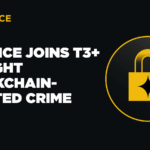Sergei Potapenko and Ivan Turogin, the Estonian co-founders of the now-defunct cryptocurrency mining platform HashFlare, are set to face sentencing on Thursday in the US District Court for the Western District of Washington. The duo, who pleaded guilty to conspiracy to commit wire fraud in February 2025, are at the center of a heated legal battle, with US prosecutors pushing for a 10-year prison term while the defendants argue for time served.
In a Monday filing, prosecutors sharply rebuked the defense’s claim that HashFlare’s victims suffered no significant financial harm. Potapenko and Turogin, who ran the platform from 2015 to 2019, have pointed to $400 million in crypto returned to users and assets forfeited to the US government in 2022 as evidence of minimal losses. Their lawyers also cited an expert opinion suggesting investors faced no substantial harm, bolstered by crypto market gains. Prosecutors, however, called these arguments “wrong” and labeled HashFlare a “classic Ponzi scheme.” They argued that the expert opinion relied on fabricated investor earnings data—admitted as false in the plea agreements—and that the defendants’ own figures align with victim claims of significant losses. “The harm HashFlare’s victims suffered could not be more real,” prosecutors stated, emphasizing the scheme’s $577 million scale and its impact on 440,000 investors, including 50,000 in the US who contributed over $130 million.
A Massive Fraud Unraveled
Indicted in October 2022, Potapenko and Turogin were arrested in Estonia and extradited to the US in May 2024 after 16 months in custody. Released on bail in July 2024, they admitted to selling fake mining contracts, using new investor funds to pay returns to earlier ones, and funneling proceeds into luxury real estate and cars. The US Department of Justice has called this one of the largest fraud cases ever prosecuted in Seattle’s federal court. The defense argues that rising crypto prices allowed 390,000 customers to withdraw $2.3 billion, far exceeding the $487 million invested, and that forfeited assets will fully compensate victims. Prosecutors counter that these payouts were funded by deceit, not legitimate mining, and estimate actual losses at $300 million. They insist a decade-long sentence is necessary to reflect the crime’s severity and deter future fraud.
Deportation Adds Complexity
Adding a twist to the case, Potapenko and Turogin received letters from the US Department of Homeland Security directing them to “self-deport” as part of the Trump administration’s mass deportation push. Despite a court order requiring them to remain in the US, the conflicting directives have raised questions about how their immigration status might affect sentencing. It’s unclear if Judge Robert Lasnik will factor this into his decision.
The sentencing, scheduled for August 14, 2025, is being closely watched as a potential benchmark for cross-border crypto fraud cases. With over $130 million from US investors, prosecutors argue the case belongs in American courts, dismissing defense claims that it should have been handled in Estonia. The outcome could shape how global crypto crimes are prosecuted, especially as digital assets gain mainstream traction.
Disclaimer: This article is for informational purposes only and does not constitute legal or investment advice. The views expressed are those of the author and do not necessarily reflect those of Vizi.com.



















